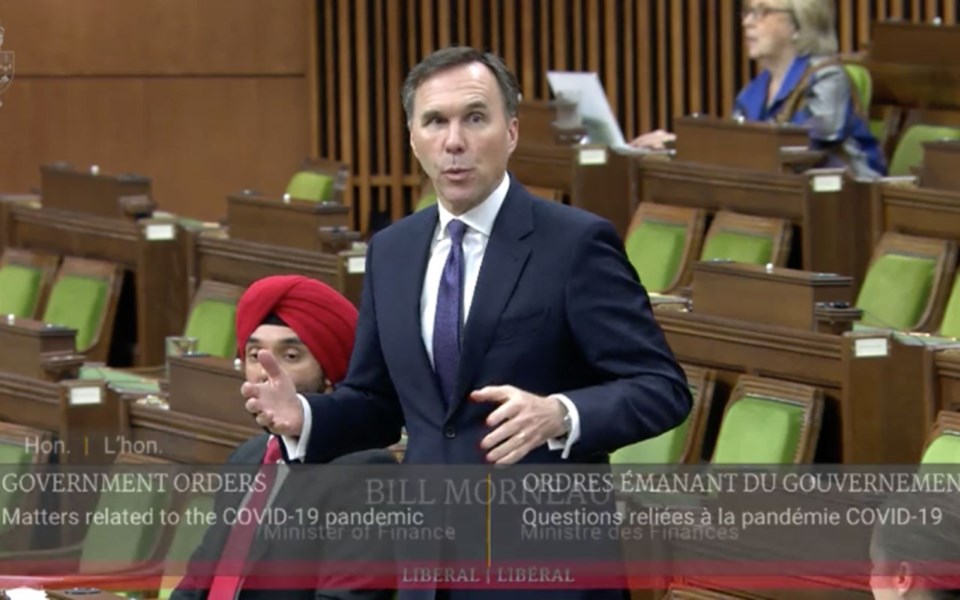Federal party leaders and a handful of cabinet ministers and members of Parliament convened Saturday to debate the Canada Emergency Wage Subsidy (CEWS) – an up to 75% employee wage subsidy available to businesses, non-profits and charities that have been negatively impacted by COVID-19 and measures to slow the spread of the virus.
All parties have agreed to support the bill, which covers 75% of the first $58,700 earned by an employee for a 12-week period. The benefit works out to up to $847 per employee, per week, from March 15 to June 6.
The subsidy is available to businesses of all sizes, non-profits and registered charities that have experienced a 15% decline in revenue. Revenue loss can be calculated by comparing revenue in March, April and May to the same month in 2019, or to average revenue earned in January and February.
Before the funds are released, an organization will need to show that they have paid their employees.
Most of the debate on Saturday focused on other forms of support for Canadians and sectors of the Canadian economy, including the country's agriculture and energy sectors.
New Democratic Party (NDP) leader Jagmeet Singh called on the federal government to remove eligibility criteria from the Canada Emergency Response Benefit (CERB), which provides $2,000 a month for up to 16 weeks to Canadians who have lost income for at least two weeks in a row.
"We recognize there are other people in different situations," responded Prime Minister Justin Trudeau. Government has said it is working to address gaps in the CERB program. It has not confirmed what those changes are or when they might take effect, but has said that updates will be made quickly.
Conservative Party of Canada leader Andrew Scheer asked Trudeau repeatedly about whether support was coming for the country's hard-hit energy sector. Trudeau said that there will be more coming for the oil sector as the federal government develops sectoral solutions.
"We recognize that there are people who we still need to consider how we can support them," said Finance Minister Bill Morneau in response to a question about what the federal government is doing to support micro-businesses and small businesses struggling to survive.
"We still need to consider whether there are additional things that we can do," he said, adding that the wage subsidy bill up for debate is a $73 billion package that will support small businesses, including small and large businesses in Canada's oil sector.
Beyond the pandemic, Deputy Prime Minister Chrystia Freeland said government can only focus on a relaunch or recovery plan once it is clear that COVID-19 has reached its peak in Canada.
"We are definitely working on such a plan, as would any prudent government," she said, noting that it is possible Canada sees a second or third wave of the coronavirus.
For the original version of this story, click here.
@hayleywoodin




